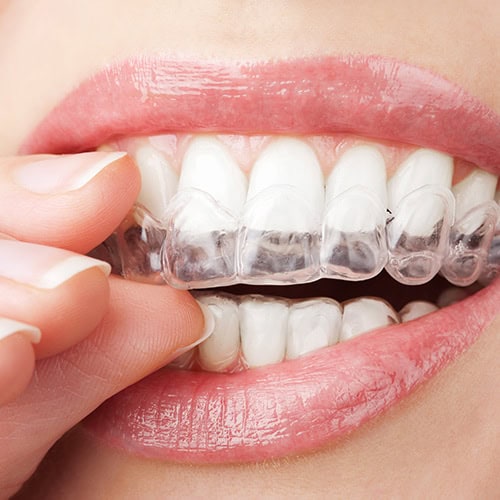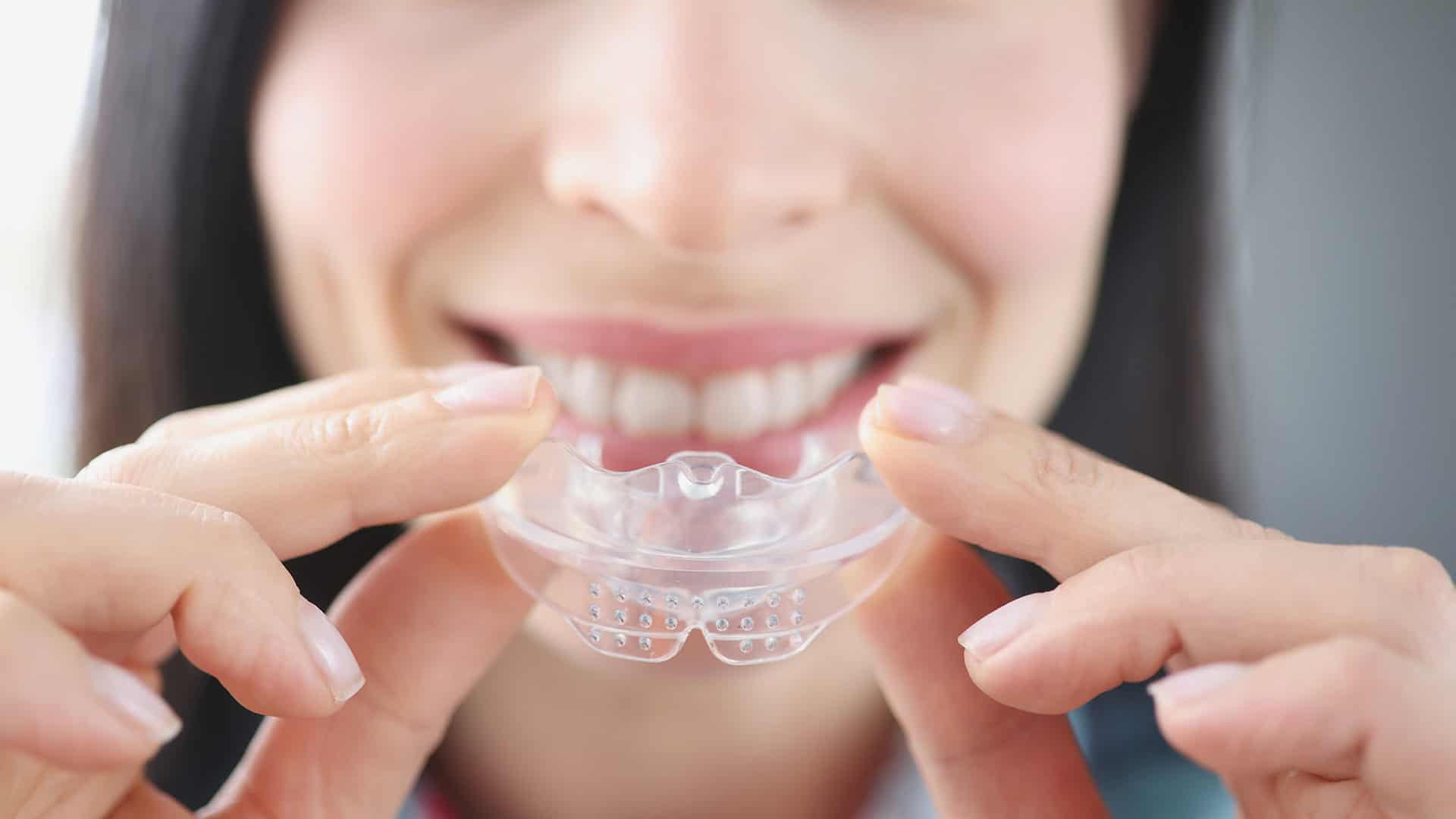Mouthguards (Athletic & Night Guards)
At Washington Smiles, we offer custom mouthguards tailored to your needs, whether you need protection while playing contact sports or to prevent wear and tear on your teeth.

Clenching & Grinding
Stress can cause some people to grind or clench their teeth while sleeping. This habit can be dangerous to teeth. Grinding over a long period can cause severe damage to teeth and jaws due to the wearing down of enamel. It can also lead to TMJ.
Protecting with a Night Guard
Repositioning your jaw with a custom night or snore guard can prevent you from grinding your teeth during the night. Our guards are made of lighter and thinner materials, ensuring a comfortable fit that makes it easy to talk while wearing them. When you schedule an appointment with our dentist, we will take an impression of your teeth and create a mold to ensure the perfect fit for your night guard.

Athletic Mouth Guards
While participating in sports, your mouth is susceptible to injuries, and to protect yourself, you should wear an athletic mouthguard. With any mouthguard, you can save your teeth from impact during a game or event. However, with a custom-fit mouthguard, you get the added protection and longer life of the mouthguard against the store-bought versions. Investing in a mouthguard is a cost-effective way to protect your teeth proactively. If you experience an injury to your mouth, it will surely cost more in the future than a mouthguard will now.
We welcome local athletic directors and coaches to schedule custom fittings with us for the whole team!
Contact Us
Complete the form below for a consultation. A team member will contact you as soon as possible upon receiving it.







